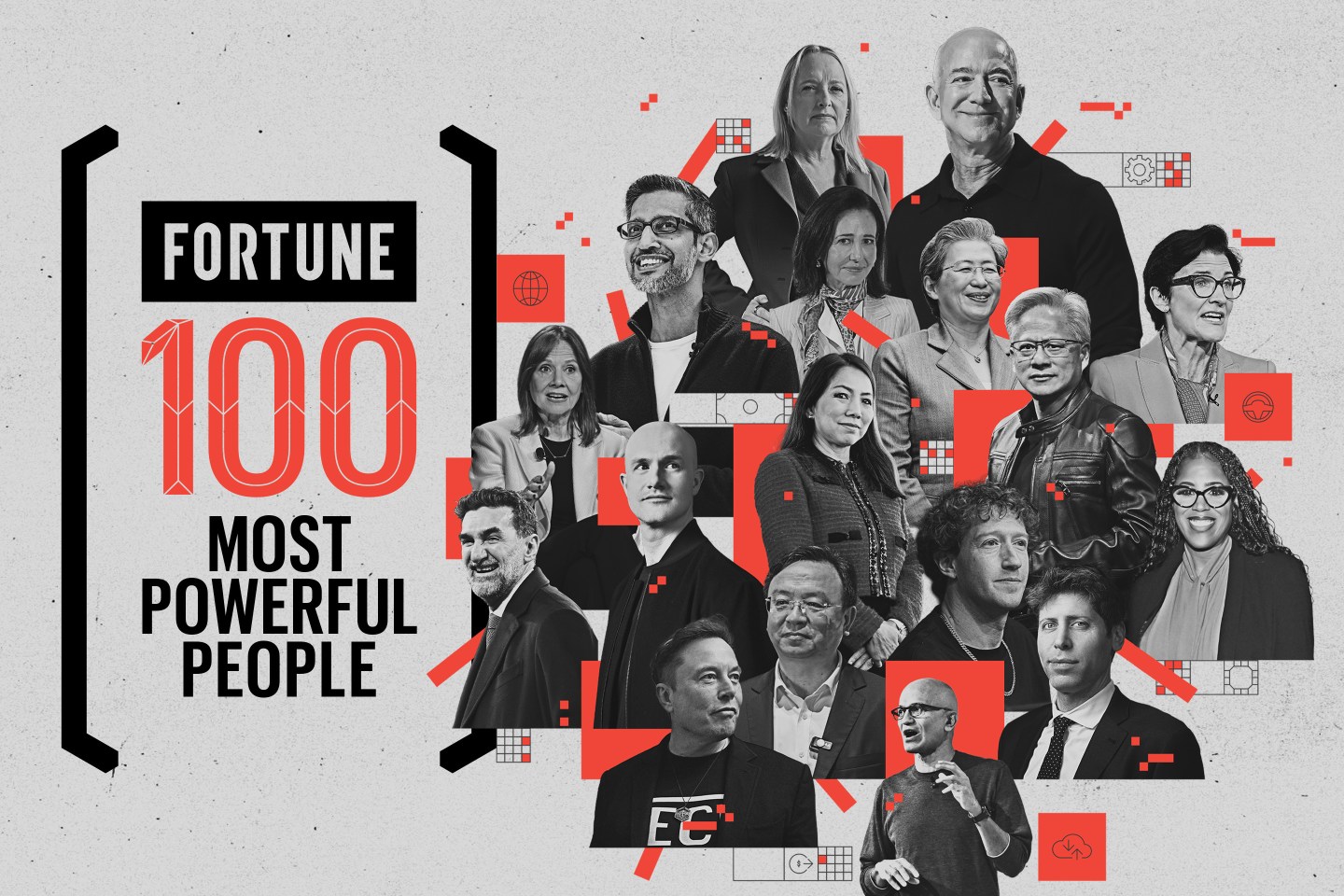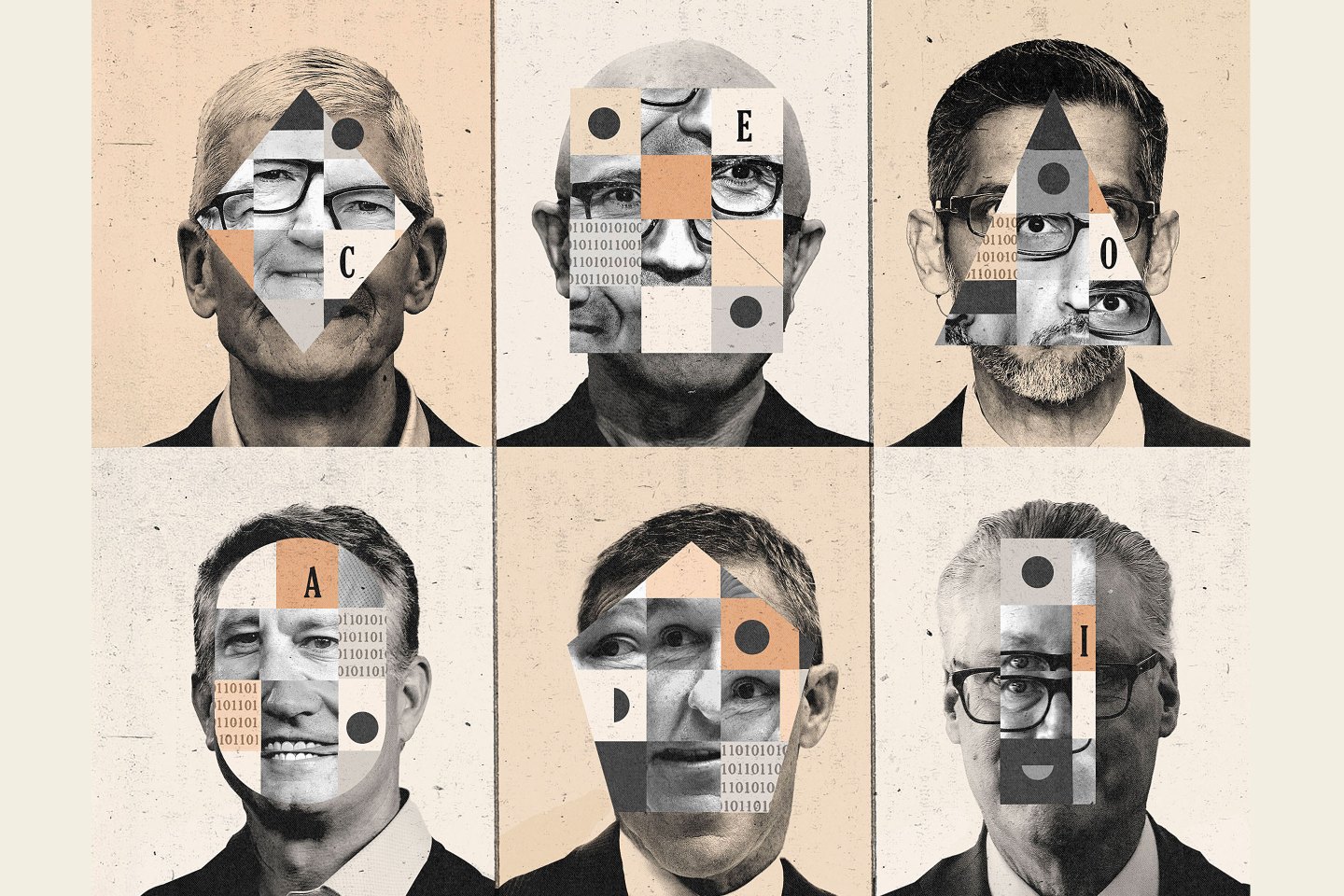What is power? Imagine the world’s most valuable companies and the nations with the largest economies are clambering over one another to get what you sell—and they want more than you can produce.
That’s life for Jensen Huang, CEO and cofounder of Nvidia and No. 1 on the 2025 Fortune Most Powerful People in Business. After decades of naysayers dismissing the value of Huang’s specialized computer chips, that hardware is now the most coveted by companies developing artificial intelligence, arguably the most profoundly important technology ever. That’s why Nvidia is today the most valuable company traded on U.S. exchanges. The other mega-tech CEOs in our top 10 most powerful—Microsoft’s Satya Nadella, Meta’s Mark Zuckerberg, Alphabet’s Sundar Pichai—are among those desperately yearning for more of Huang’s chips.
But even Huang mustn’t get comfortable. At the highest level of global commerce, powerful
rivals are never far away. More broadly, this list is strikingly filled with head-to-head rivalries. We rank these businesspeople on six criteria, and in many cases the results show direct competitors ranked very near each other based on power. For example:
Amazon’s Jeff Bezos is No. 18, and Walmart’s Doug McMillon is No. 19. Tesla’s Elon Musk is No. 4, and BYD’s Wang Chuanfu is No. 5.
Such results suggest well-matched competitors are duking it out everyday. Even when competitors’ power rankings aren’t so close, nearly everyone on the list, regardless of industry—big banks, cloud-computing firms, retailers, private equity firms—is running a business that must fight multiple competitors that are also on the list. This ranking shows that the world’s most powerful businesspeople aren’t those who lord over monopolies. Just the opposite. Bosses of regulated electricity providers, though performing a noble duty, aren’t on the list, for example. The most powerful are those toughened by formidable competitors. They make one another better.
History shows, however, that strengths can become weaknesses over time, and that is the most dangerous threat looming over these titans. Most of them—not all, but most—run large, long-established companies. The greatest competitive threats they face probably won’t come from the rivals they know best, the ones they battle with when they get up in the morning. The more insidious threats are the stealthy startups that seemingly couldn’t pose a real threat to a company run by one of these all-powerful leaders. Just ask the established AI players who were blinded by the emergence of DeepSeek and its founder, Liang Wenfeng (a newcomer at No. 72 on our list). Time and again, that’s what happens.
Consider Amazon: 30 years ago, it was a dinky startup running an online bookshop, and if Fortune had published a ranking of the most powerful businesspeople back then, Sears CEO Edward Brennan might well have been included. Fast-forward to now: Amazon reported $424 billion in retail-related revenue last year, while Sears, which once had 3,500 stores, has eight.
In the economic turmoil of the AI revolution, leaders will become laggards. The competitive structure of industries will be radically reordered. Whole sectors may be wiped out.
Who remains powerful depends heavily on how one navigates the opportunity—and the threat—of a lifetime.
This article appears in the August/September 2025 issue of Fortune.













